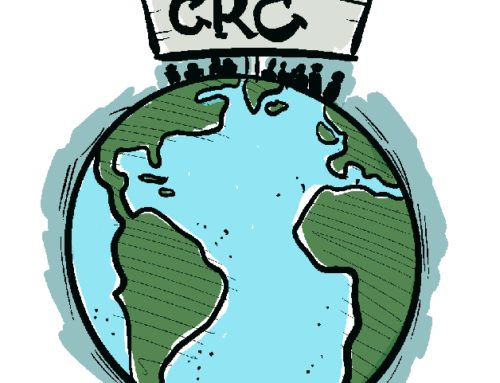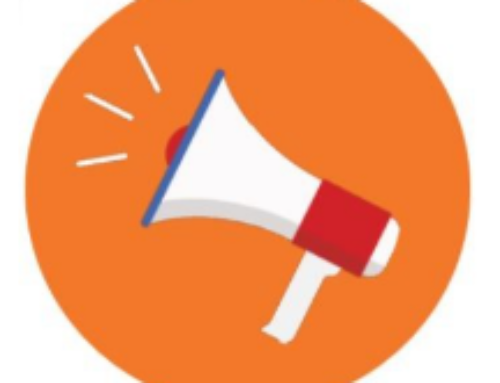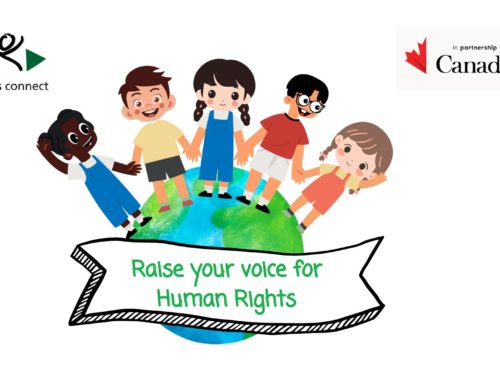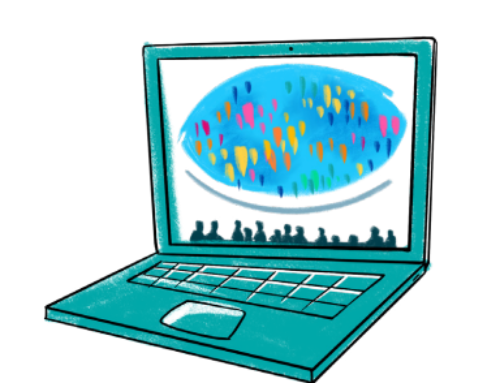In a context of growing anti-child rights rhetoric globally, on 26 May 2023, more than 200 children, including many of our child advisors, as well as child rights experts and practitioners (among whom around 74% of girls and women) gathered in Geneva or online as part of our 40th anniversary conference “Changing the narrative: Promoting positive change with children around 40 years of civil society advocacy in Geneva”.
They joined hands to identify and assess key obstacles faced by the child rights movement and strategize on how to respond to these challenges, with children. Whether they acted as speakers, moderators or participants, our child advisors and other children with whom we engage were able to voice their aspirations, share their experience, and inspire us all. They contributed to constructive, open and rich discussions on how we can strengthen the child rights movement and better recognize, protect and empower children in their work as human rights defenders.
The discussions underpinned a strong call for changing the narrative around the roles of and positive changes brought about by the various actors across the child rights movement, particularly child human rights defenders.
You can access more background information, and the presentations and recordings from the conference on our dedicated webpage here.
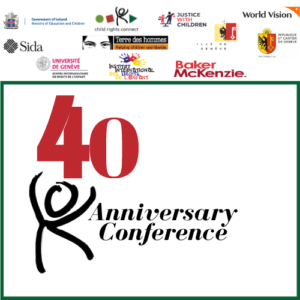
Why it was timely to convene a global expert conference with children
This year, we celebrate our 40th anniversary. This coincides with 25 years since adoption of the UN Declaration on Human Rights Defenders and 75 years since adoption of the Universal Declaration of Human Rights (UDHR).
We could not let this go unnoticed, especially at a time where growing attacks on democracy, shrinking civil society space and an unprecedent backlash against universal human rights drastically undermine child rights, their defenders, including child human rights defenders, and the larger child rights movement. This also marked a welcome opportunity to gather the global child rights movement in an inter-generational dialogue with children, after several years of restrictions due to the Covid-19 pandemic and other challenges, and to jointly celebrate 40 years of coordinated global civil society advocacy in Geneva for child rights, from advocating for the adoption of the UN Convention on the Rights of the Child (UNCRC) to pushing for its universal implementation today.
One of the founders of the NGO Group for the Convention on the Rights of the Child (previous name of Child Rights Connect) which coordinated civil society advocacy for the drafting and adoption of the UNCRC stated: “When we launched the NGO Group in ’83, we wowed to wind it up once the UNCRC was drafted and adopted. Thank goodness we didn’t – committed people have ensured that it has continued to play a vital role to this day for the human rights of children. It was quite simply superb to be with them celebrating the 40th anniversary [of Child Rights Connect], and strategising for the future in light of the anti-rights backlash”.
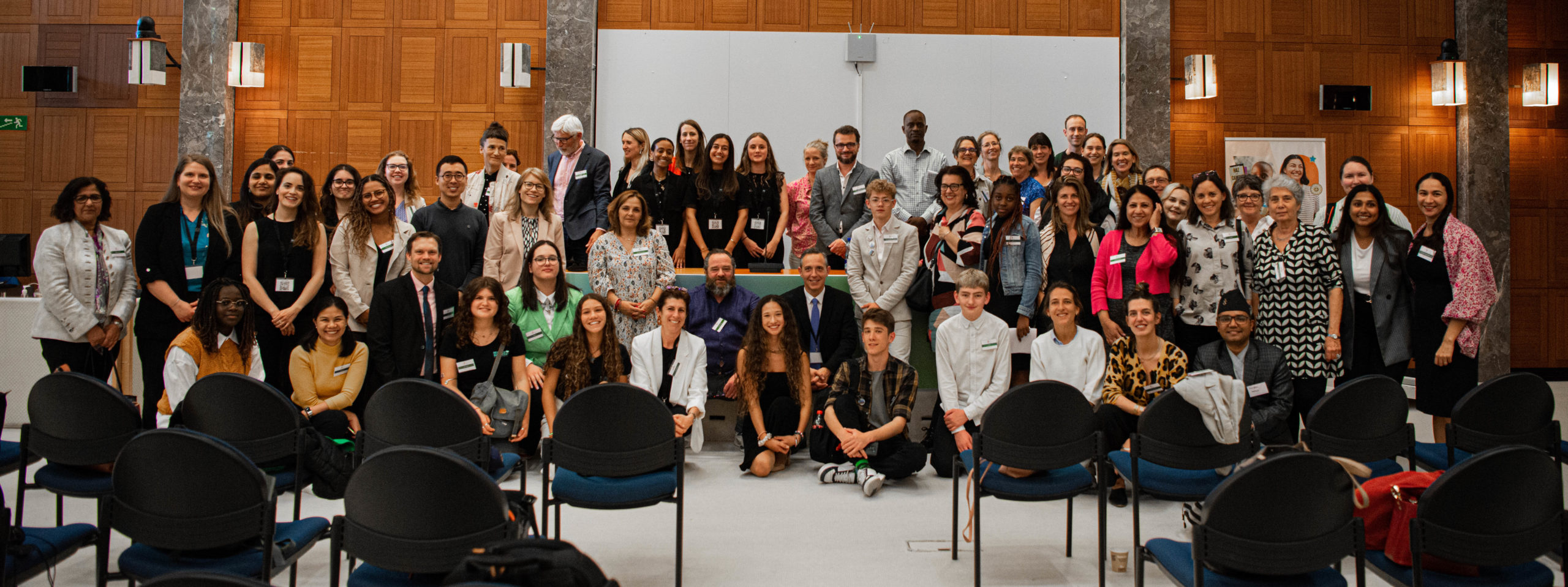
Photo credit: @Child Rights Connect / Ruhy Patel | Caption: Children, and child rights experts and practitioners gather to celebrate our 40 years of existence and strategise for the future!
Key highlights from the discussions
The conference was centered around two plenary high-level panels: the first considered the context and challenges faced by the child rights movement and child human rights defenders, and the second explored potential responses through UN mechanisms and agencies. Each plenary session was followed by parallel working sessions on key thematic issues, aimed at identifying elements for the subsequent development of a global strategy to counter anti-child rights rhetoric through changing the narrative around the role and impact of the child rights movement.
The conference was opened by a representative of the Ambassador of Switzerland to the United Nations (UN) in Geneva, who recommended to build on “the diverse and collaborative nature of the child rights movement”, for children to continue to speak up and for adults to listen as responses to attacks on child rights. Our Network President, Maria Herczog, called on the child rights movement to address the backlash in its own specificities and significance, building on the unique opportunity provided by children engaging as human rights defenders.

The morning plenary was proceeded by a dialogue with representatives of our Children’s Advisory Team, which has been selected as ‘Changemakers’ by World Vision International, a member of Child Rights Connect, in recognition of their significant contribution to advancing child rights across the globe.

During the morning plenary panel, focused on the anti-child rights rhetoric, our child advisor from Brazil shared first-hand experience of the multilayered obstacles faced by child human rights defenders in their activism, ranging from “lack of awareness and understanding [of their role and rights], to lack of credibility due to the age difference, security issues, lack of political will and legal barriers”. She called on all stakeholders to “transcend these obstacles”. This was echoed by Najat Maalla M’jid, Special Representative of the UN Secretary-General on Violence against Children, who recalled that “many children do not have safe pathways to express themselves”, that “protection and empowerment” of child human rights defenders are the “two key elements of the safe equation” and called for an “intergeneration whole of society approach to transform discrimination norms into child rights compliant practices”. Similarly, Barbara Hintermann, Director General at Terre des Hommes Lausanne Foundation, explained that “meaningful child participation is only enhanced by systematic empowerment”. Philip D. Jaffé, Professor at the University of Geneva’s Centre interfacultaire en droits de l’enfant and member of the UN Committee on the Rights of the Child (CRC Committee) analysed that “one of the ingredients shaping the new narrative is that children have been empowered by digital technologies” and called on the CRC Committee and child rights movement to do a lot more work to collectively protect all child human rights defenders, with a special focus on those from marginalized groups such as children with disabilities.
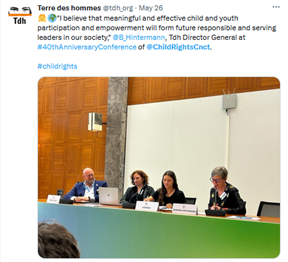
During the following parallel working group sessions 1 and 2, participants respectively dived into the intricacies of, and potential responses to, anti child-rights narratives and attacks based on traditional and family values, and the political rights of children. During working group session 1, the experience from Bulgaria, El Salvador and other countries were shared by child human rights defenders and civil society representatives, with a joint analysis that the bolstered action of anti-rights groups growingly undermines the work of children’s rights defenders, including children, in multiple, and sometimes severe and lasting ways. In response, our former child advisor from El Salvador recommended “strengthening the inter-generational dialogue” and Monica Ferro, UNFPA Geneva Office Director, for the child rights movement to map those behind the anti-child rights discourse, share more successes and failures, and learn more from one another, even beyond the child rights nexus.

During working group session 2, distinguished speakers, including two of our child advisors (respectively from Mexico and Venezuela), Ann Skelton, Chair of the CRC Committee, two civil society representatives (from the Plataforma Colombiana de organizaciones sociales y populares por el protagonismo de niños, niñas y jóvenes and CIVICUS), reflected on the situation of children’s political rights across the globe, emphasizing the importance of ensuring children’s access to safe space of expression, pushing for sanctions against public officials violating children’s right to peaceful assembly, and encouraging civil society to provide reports on limitations on children’s political rights so that the CRC Committee can give strong feedback to States. It was recognized that the general state of civic space, on the decline in many corners of the world, affects barriers children face in claiming their rights to freedom of expression, association and assembly.
Quote from our child advisor in Venezuela: “There is contradiction between the space given to children and the social reality where there is censorship over freedoms, especially for us, young people. What is the motivation of children to participate if they think it won’t make any tangible difference?”.
In the afternoon, before the plenary, we were extremely privileged to have Mr Volker Türk, the UN High Commissioner for Human Rights, deliver a keynote address, followed by an interactive dialogue with children and other participants. His main message could not be clearer: “Speaking about changing the narrative on child rights, we also need to change the narrator: children telling their own narratives”. Inspired by the positive change promoted by children, he called on policymakers to always refer to universal human rights standards, learn from children, and act forcefully in the face of attacks on child rights.
“Children are incredible, powerful champions of change. They have been leading on climate change action. I know that some things that have happened would not have happened without you. Children, don’t underestimate the political force that you have!”, said Mr Volker Türk, the UN High Commissioner for Human Rights.

Photo credit: @Child Rights Connect / Ruhy Patel| Caption: Representatives from our Children’s Advisory Team and young participants at the conference.
He recognized that child human rights defenders may face serious consequences for their action: their opinions may be dismissed, they may be punished, and they may undergo threats, violence and even execution. The High Commissioner stressed the importance of the availability and accessibility of child-friendly complaint mechanisms and vowed for this office to better incorporate the views of children in their work, including in the context of upcoming celebrations around the 75th anniversary of the UDHR.
“I will make sure that the voices of children will be incorporated in the vision and forthcoming Management Plan of my office for the next five years”, stated Mr Volker Türk, the UN High Commissioner for Human Rights.
Hosted by Iceland, the afternoon plenary panel focused on how to leverage UN mechanisms and agencies to respond to challenges for the child rights movement. The Minister of Education of Iceland called for more inclusiveness in the development and implementation of international standards on child rights, including through empowering civil society in their supporting role and, first and foremost, empowering children to participate in reform-making. “Even Government officials can become child rights activists if they seat at the table.” Our child advisor from Iceland explained how, in partnership with the Government of Iceland, we are developing a tool on how to include children in the process of implementing the recommendations from the CRC Committee to Iceland.
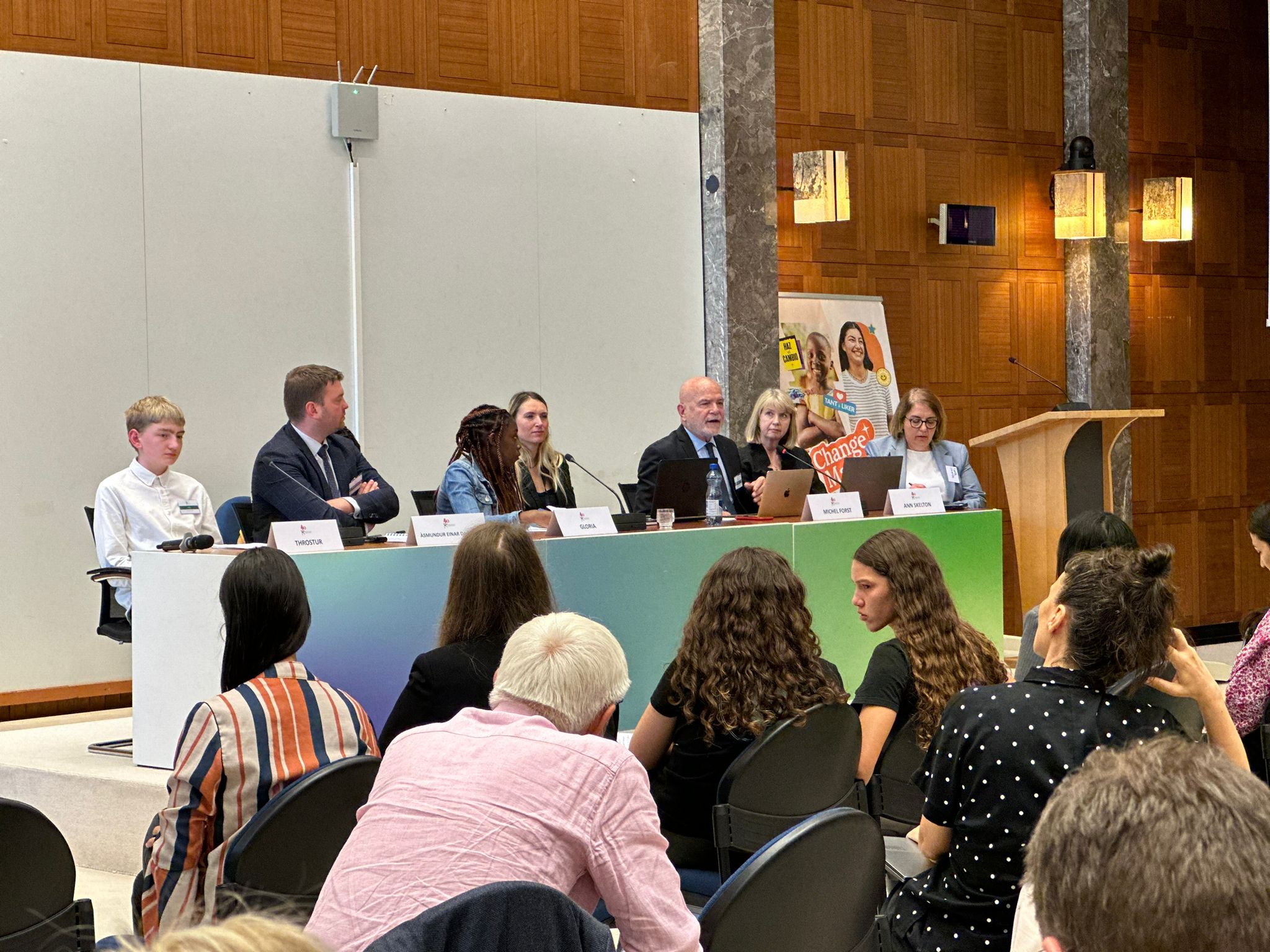
Photo credit: @Child Rights Connect / Lindah Muthee | Caption: From left to right: Our child advisor from Iceland, the Minister of Education of Iceland, our child advisor from Cameroon (moderator of the session), Michel Forst, Ann Skelton and a representative of the UN Special Rapporteur on the situation of Human Rights Defenders during the afternoon plenary session, 40th anniversary conference, Geneva, 26 May 2023
In a strong statement, Catherine Russell, UNICEF Executive Director, noted that attacks on child rights and their defenders are not new but are intensifying. “We must do more. We should adopt a common discourse and reaffirm the status of children as rights-holders independent from their parents”. She called on civil society to also seize the opportunities of the 75th anniversary of the UDHR and Summit of the Future to advance child rights advocacy.
The Chair of the CRC Committee reminded that the Optional Protocol on a Communications Procedure (OPIC) is an instrument through which complaints can be brought about the shrinking of civil society space and violations of children’s political rights.
Mary Lawlor, UN Special Rapporteur on the situation of human rights defenders, reflected on positive societal changed achieved by child human rights defenders, and called on governments to explicitly recognize children working peacefully as child human rights defenders as the UN Declaration on human rights defenders also applies to children.
Michel Forst, Special Rapporteur on environmental defenders, recognized the significant role played by child human rights defenders in climate justice action, and committed to use the three pillars of the Aarhus Convention on access to information, public participation in decision-making and access to justice in environmental matters to ensure that children have access to information, promote child participation and foster child human rights defenders’ access to justice through legal representation.
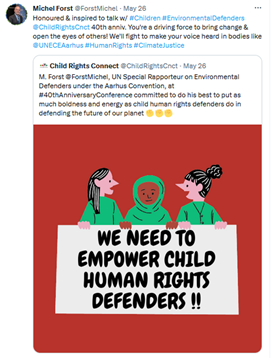
During working group session 3, focused on “Access to justice for child rights defenders: paving the way to protect and empower children”, participants reflected on the challenges for child human rights defenders to access justice for violations of children’s rights, including as a result of their action as defenders. The experiences of our child advisors in Nepal and Palestine were shared, both inspiring participants as well as making them aware of distinct challenges faced in those countries. The particularities of justice in the context of digital rights were highlighted. Attention also focused on lessons learned from the empowerment and action of child environmental activists and their call for urgent action on climate justice.
During Working group session 4, participants discussed the use of, and recourse to, established protective mechanisms for human rights defenders by child human rights defenders. The experience shared by our child advisor, a young human rights defender and a civil society representative from Moldova (Child Rights Information Center) as well as from a civil society representative from Latin America (CEJIL) highlighted that existing protective mechanisms, including at regional level, are not tailored to children’s needs and not accessible to them. Mikiko Ottani, member of the CRC Committee, called on the UN, particularly other Treaty Bodies, to reach out more to and engage more with children, as well as take steps to ensure that children understand how to use these mechanisms, including through ensuring access to child-friendly information.
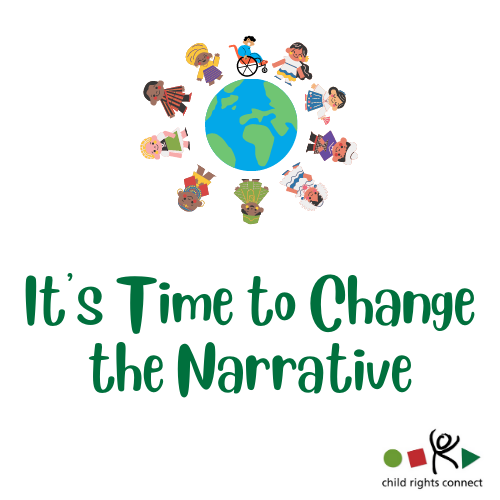
Next steps: towards a global civil society strategy for the child rights movement
We heard it loud and clear from everyone: it’s time to change the narrative, and, most importantly, to do so with children.
As one of our members put it: “There comes a moment in time when enough is enough, when we say this far and no further, when we push back against positions, arguments and narratives that seek to undermine fundamental principles and vital commitments and obligations towards the realisation of the rights of the child! Time to rise to the challenge and #ChangeTheNarrative”
In the next few weeks, we will strive to meet the challenge first by preparing an outcome report of the conference, compiling the many inspiring and interesting findings and recommendations from the discussions. This will form the basis of our efforts to strengthen our on-going child rights advocacy as well as to identify potential global responses to the challenges being faced by the child rights movement and child human rights defenders. These findings and recommendations will be key to informing the development of the Strategic Plan for 2025-2029 for the Child Rights Connect network, which will be considered for adoption at the organisation’s General Assembly in mid-2024. Conference discussions will also inform our contribution to the Human Rights 75 Initiative of the Office of the High Commissioner for Human Rights, which will affirm the need to put children’s rights at the core of any new vision for the future of human rights, including through child participation.
Thank you!
We sincerely thank (in alphabetical order) Baker McKenzie, the Canton of Geneva, the City of Geneva, the Global Initiative on Justice with Children, the Institut international des droits de l’enfant (IDE), the Ministry of Education and Children of Iceland, Terre des Hommes Lausanne Foundation, the Swedish International Development and Cooperation Agency, the Swiss Federal Department of Foreign Affairs, the University of Geneva’s Centre interfacultaire en droits de l’enfant (CIDE), and World Vision International for their financial and technical support. We also warmly thank all participants, with special thanks to our global Children’s Advisory Team and the other children who took part in the event, the adults who supported them, the volunteers who supported the smooth running of the event, all moderators and speakers, as well as the UN Committee on the Rights of the Child and the UN Office of the High Commissioner for Human Rights for facilitating the convening of the conference within the programme of work of the UN Committee on the Rights of the Child.




